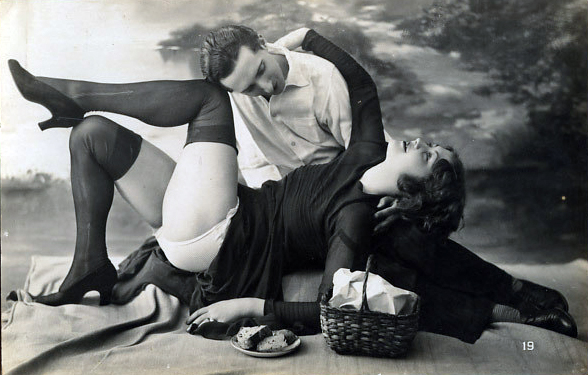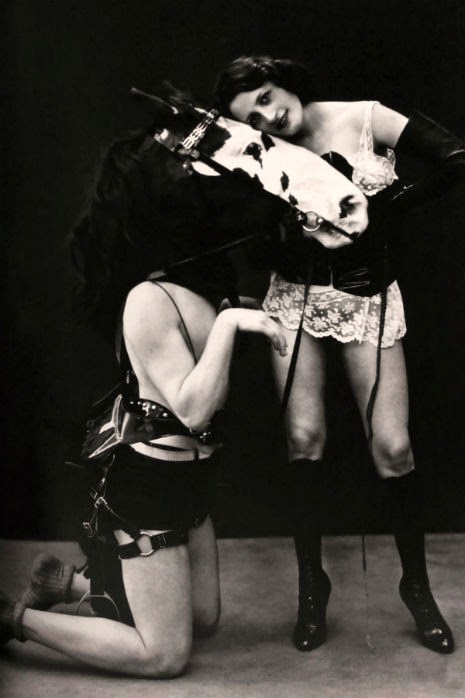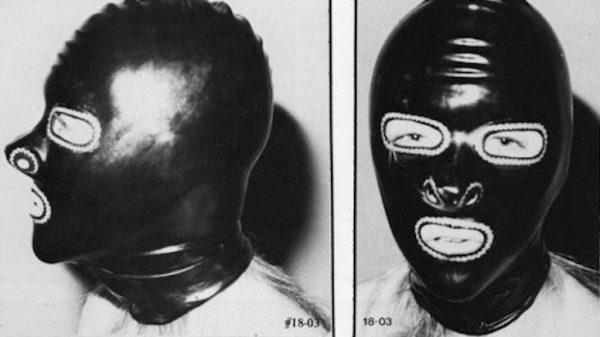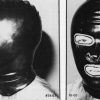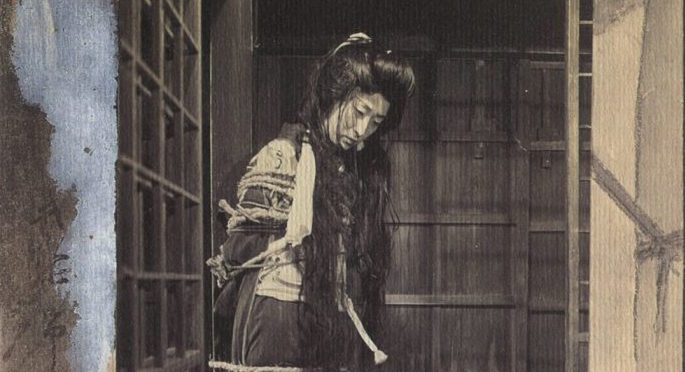While the pin-up craze was reaching its height of popularity in America, things were a little less vanilla in France thanks to the Biederer Brothers. Czech immigrant Jacques Biederer got his start doing simple nudes, and then over time began creating his own brand of risqué storytelling. It started off being more about the tease, and then later grew more bold in the exploration of BDSM. He began to capture images that most of your Fet-life feed is paying homage to without knowing it.
His own personal fetishes swayed much of his work, making his fixation on spankings pretty obvious. The roles changed as he portrayed fem doms as well a men holding the paddles. However, the males were far from the leather-clad Tom of Finland types. Instead, he opted for men in roles such as teachers, creating a Lolita vibe, or men dressed like they were going out for a night at the opera.
The voyeuristic quality that fuels the cam sites of today was present but in a more innocent fashion. His pictures left enough to the imagination; it was more about the process of undress and humiliation rather than the more mindlessly pornographic depictions you get today when typing “BDSM” into Google. In the 1930s, the brothers branched off from Biederer Studios to form Ostra Studio, and this venture took them into a wider range of subject matter that they eventually published as a book. This could be seen as one of the earlier forms of fan fiction, as historical figures like Napoleon were shown dishing out spankings.
By the standards of mainstream 50 Shades of Gray BDSM, he was delving into some of the more experimental corners of the fetish world, going as far as depicting pony play and including chastity belts and spreader bars. One of his favorite forms of spanking to display was to have the girls hanging like puppets while being spanked with the Martinet, a short-handled whip that was fairly common at the time for parents in France to take to their children. He preferred this over bare-handed spanking.
While the fem dom was a frequent figurehead in his work, women got the roughest treatment from other women. He felt the need to coat the play with innocence, and it often took a more serious, dungeon-like turn. Even then, his work retained an air of sophistication and elegance. Only the most puritanical could see this as smut due to the high artistic quality of his work. At the time, Biederer did not want to draw attention to his personage and eventually stopped signing his work. It was the props he used that became his signature.
Though the Biederers died in the concentration camps of World World II, their legacy lives on, and their contribution to the lifestyle is paramount. There is a book on Biederer Studios called Les Editions Ostra: L’age d’Or du Fetichisme that was released in 2007. Biederer is also thought to be the inspiration for the 1981 film Quartet.

